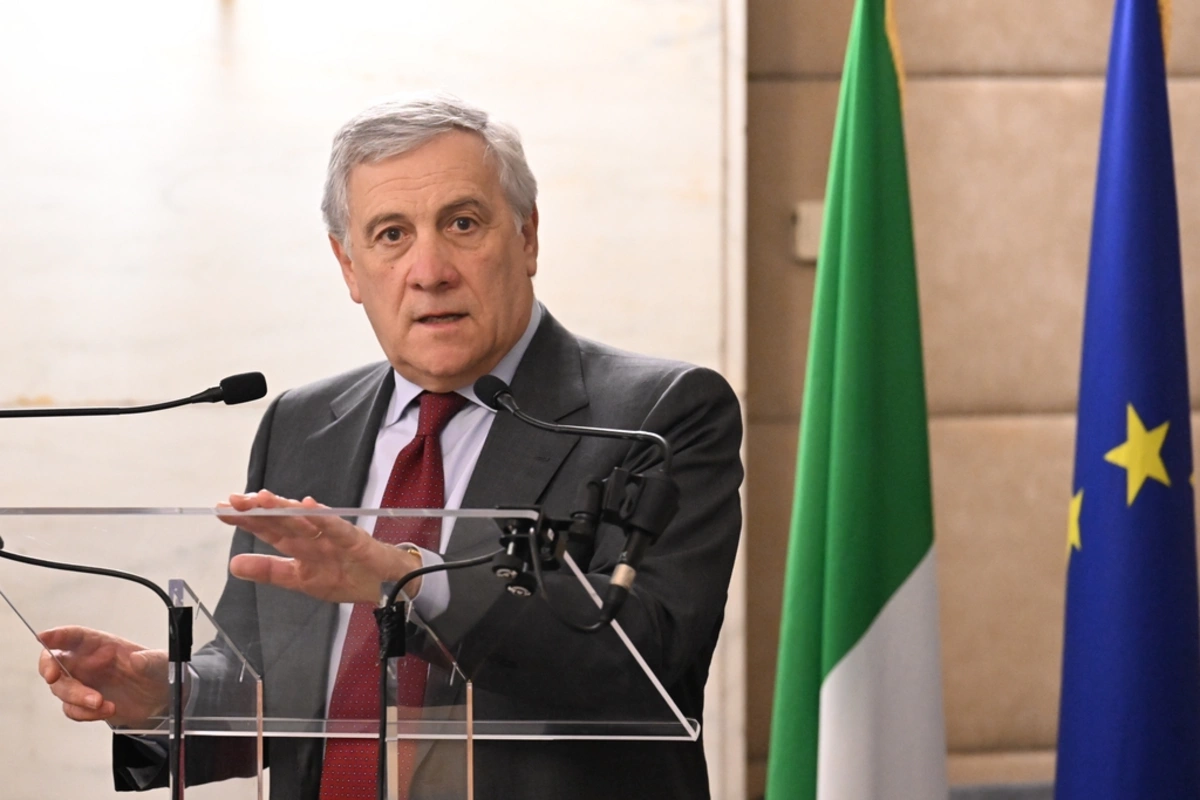
Italy is the latest to criticise Iran’s crackdown on protesters. But although Iran might be using softer language recently, it seems that Tehran still sees its heavy-handed policy as successful. Are there any winners in this situation?
Italy's Foreign Minister Antonio Tajani. Image: Italy MFA/Twitter
As most of the world is well aware, a rolling series of demonstrations have been ongoing in Iran since the September death in custody of Mahsa Amini, a young woman whose only crime had been not using sufficient modesty in covering her hair. For most outside observers, the protests that followed are entirely understandable complaints against a theocratic system perceived by many to be out of step with the people it governs. However, the Iranian government perceives the protests to have been stirred up, if not organised, by its many foreign enemies—a viewpoint doubtless bolstered by years of relatively arbitrary international sidelining, most notably US President Trump’s unilateral re-introduction of sanctions from May 2018. On either side of the argument, however, few disagree that the protests represent the most prolonged and serious threat yet to the theocratic government. So far, Tehran’s response seems to have been mostly one of heavy-handed repression.
Though detailed statistics are hard to confirm, the reported numbers are stark. Oslo based group Iran Human Rights (IHR) estimates that 476 protesters have been killed since demos started. Iranian authorities accept over 200 dead (including security officers). Estimates for the number of protesters arrested range from 14,000 to 18,500, and although over 80% of these people have apparently been released since, an IHR report from December 27 suggested that as many as 100 detainees face the death penalty, with 11 having been so sentenced and two people already executed this month.
An IHR spokesperson suggested that Tehran was using death sentences as a way to make protesters lose hope and "go home." However, some analysts argue that many in the younger generation simply feel that they have nothing to lose. High-profile cases of those daring to show support to the protesters have included popular musician Shervin Hajipour and rapper Toomaj Salehi (both since arrested).
Meanwhile, international reaction to Iran’s harsh anti-protest stance has been vociferous. On November 14, the EU added new targeted sanctions, working in concert with the UK, Canada, and the US to show disapproval of the situation.
On November 24, the UN Rights Council voted to look into the crackdown, a move rejected by Tehran. Condemnations have poured in from numerous quarters, most recently on December 28 when Italy's Foreign Minister Antonio Tajani was quoted as saying, "Taking off a veil or participating in a protest is not a crime that can lead to the death penalty anywhere in the world."
Even the sister of the Supreme Leader expressed sympathy with the "mothers mourning the crimes of the Islamic Republic" and called upon the Revolutionary Guard to "lay down their weapons" rather than use them against the people.
In recent weeks, the wording of official statements from Tehran seems to have softened somewhat. In early December, a much quoted Iranian official appeared to have stated that the ‘morality police'—who had been responsible for the original arrest of Mahsma Amini—were to be disbanded. Although this has since appeared to have been somewhat taken out of context, statements by the Supreme Leader, Ali Khamanei, suggest a very slightly more understanding stance. For example, he was recently quoted in the Tehran Times as saying, in respect of the protesters, that "some of the people had their rightful demands." Nonetheless, he went on to insist that “others were rioters” and that “the enemy[1] sought to force the Iranian leadership into making a miscalculation… that would result in the escalation of violence.”
So, by official metrics, it seems that Tehran is still convinced that the large-scale arrests and harshly violent response to street protests are seen as a policy success in defeating an existential attack on the regime. And on Christmas Day, Iran showed its disapproval of the UK’s perceived "unconstructive role" by arresting seven individuals with British links.
Undoubtedly, most will sympathize with the terrible suffering of individuals. But there have been some geopolitical winners from these months of protest. Notable examples include those like Israel’s Benjamin Netanyahu who have been extremely keen to avoid a return to the 2015 JCPOA (Iran nuclear deal). This would have ended Iran’s global economic isolation by removing or reducing its heavy sanctions burden in return for renewed assurances on nuclear non-proliferation. Many – including the Israeli leader – doubt such assurances and have long hoped that the deal could be scuppered. In the present circumstances, any return to constructive JCPOA discussions seems a long way off.
[1] Not specified but by implication possibly the West, Israeli or Saudi backed forces
Share on social media